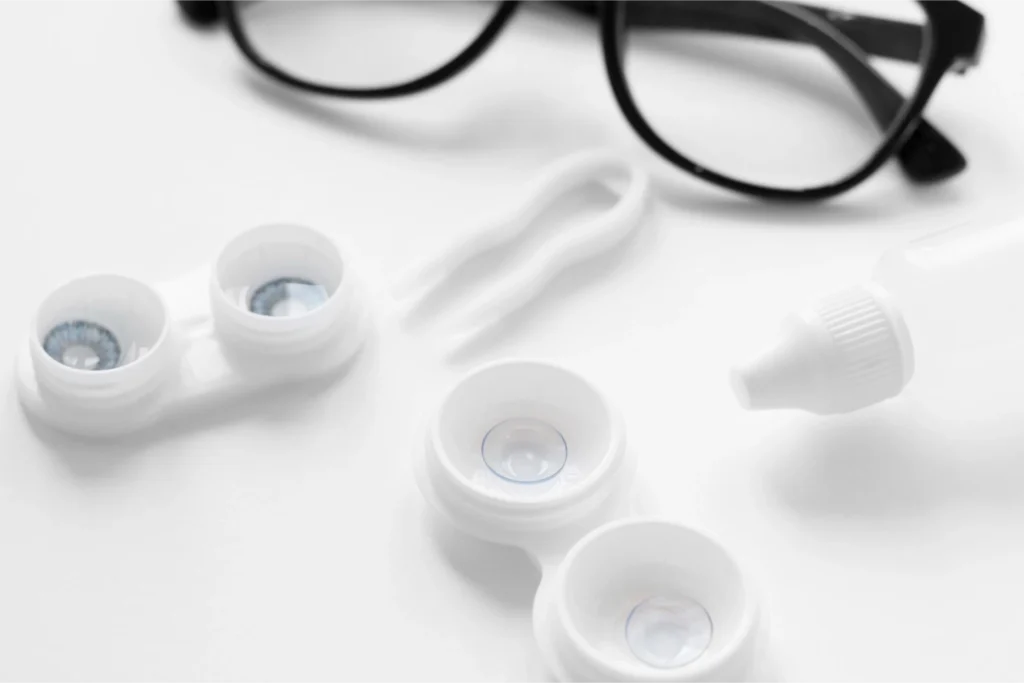Allergies can be quite troublesome, especially when they result in swollen, itchy, and uncomfortable eyes. If you’ve ever dealt with swollen eyes due to allergies, you understand the struggle to find relief.
But you know what the good news is?
Fortunately, there are several strategies you can use to prevent and manage eye allergies and the accompanying swelling. Here are five practical tips to help keep your eyes comfortable and free from allergy-induced swelling.
Understanding Allergy-Induced Swollen Eyes
Before delving into the tips, it’s crucial to understand why allergies cause swollen eyes. When your body encounters allergens like pollen, dust mites, pet dander, or mold, it releases histamines as part of its immune response.
These histamines can lead to inflammation, resulting in redness, itching, and swelling around your eyes. Understanding this process is key to effectively preventing and managing these symptoms.
Minimize Allergen Exposure
Reducing exposure to allergens is one of the most effective ways to prevent swollen eyes from allergies. Here are some methods to minimize contact with common allergens:
- During high pollen seasons, keep windows closed to prevent pollen from entering your home and use air conditioning to stay cool.
- Regularly dust and vacuum your home to reduce dust mites and pet dander, using a vacuum cleaner with a HEPA filter for better results.
- Use allergen-proof covers for your pillows, mattresses, and box springs to reduce exposure to dust mites.
- After being outdoors, shower and change clothes to remove pollen and other allergens.
- Bathe pets regularly to minimize dander and keep them out of your bedroom to reduce allergens in your sleeping area.
Improve Indoor Air Quality
The quality of indoor air significantly affects allergy symptoms. Here are ways to enhance indoor air quality:
- Invest in a high-quality air purifier with a HEPA filter to remove allergens like pollen, dust, and pet dander from the air.
- Use a dehumidifier to maintain indoor humidity levels between 30% and 50%, as high humidity can promote mold and dust mites growth.
- Ensure proper ventilation in moisture-prone areas like bathrooms and kitchens, using exhaust fans to reduce humidity.
- Keep your home smoke-free, as smoke from cigarettes, fireplaces, or candles can irritate your eyes and worsen allergy symptoms.
Adopt a Healthy Diet

Your diet can influence your body’s response to allergens. Certain foods have anti-inflammatory properties that can help reduce allergy symptoms, including swollen eyes. Consider these dietary tips:
- Include foods rich in omega-3 fatty acids, such as salmon, flaxseeds, and walnuts, to help reduce inflammation.
- Some believe that consuming local honey can help build tolerance to local pollen, although scientific evidence is limited.
- Stay hydrated by drinking plenty of water, which can help reduce mucus production and alleviate allergy symptoms.
- Some people find that reducing dairy and sugar intake helps manage their allergy
symptoms, as these foods can sometimes increase mucus production and inflammation.
Use Over-the-Counter Remedies
Over-the-counter medications can be very effective in managing allergy symptoms. Here are some options to consider:
- Antihistamines, such as cetirizine, loratadine, and fexofenadine, can help reduce the body’s histamine response, alleviating symptoms like itching and swelling.
- Over-the-counter antihistamine eye drops, such as those containing ketotifen or olopatadine, can be very effective for swollen eye allergies.
- Saline nasal sprays can help wash out allergens from your nasal passages, while steroid nasal sprays like fluticasone can reduce inflammation.
Seek Professional Help

If your allergy symptoms are severe or not adequately controlled with over-the-counter treatments, it might be time to seek professional help. Here’s what a healthcare provider can offer:
- An allergist can perform tests to identify specific allergens triggering your symptoms, helping you avoid those triggers.
- For the cure of severe allergies, a doctor might prescribe stronger medications, such as prescription antihistamines, corticosteroids, or allergy shots (immunotherapy).
- A healthcare provider can help you develop a comprehensive plan to manage your allergies effectively, including lifestyle changes, medications, and avoidance strategies.
Connect With Vision Gallery Today!
Managing swollen eyes from allergies can be challenging, but with the right strategies, you can significantly reduce your symptoms and improve your quality of life. By minimizing allergen exposure, improving indoor air quality, adopting a healthy diet, using over-the-counter remedies, and seeking professional help from platforms like vision gallery, you can keep your eyes comfortable and free from swelling.






